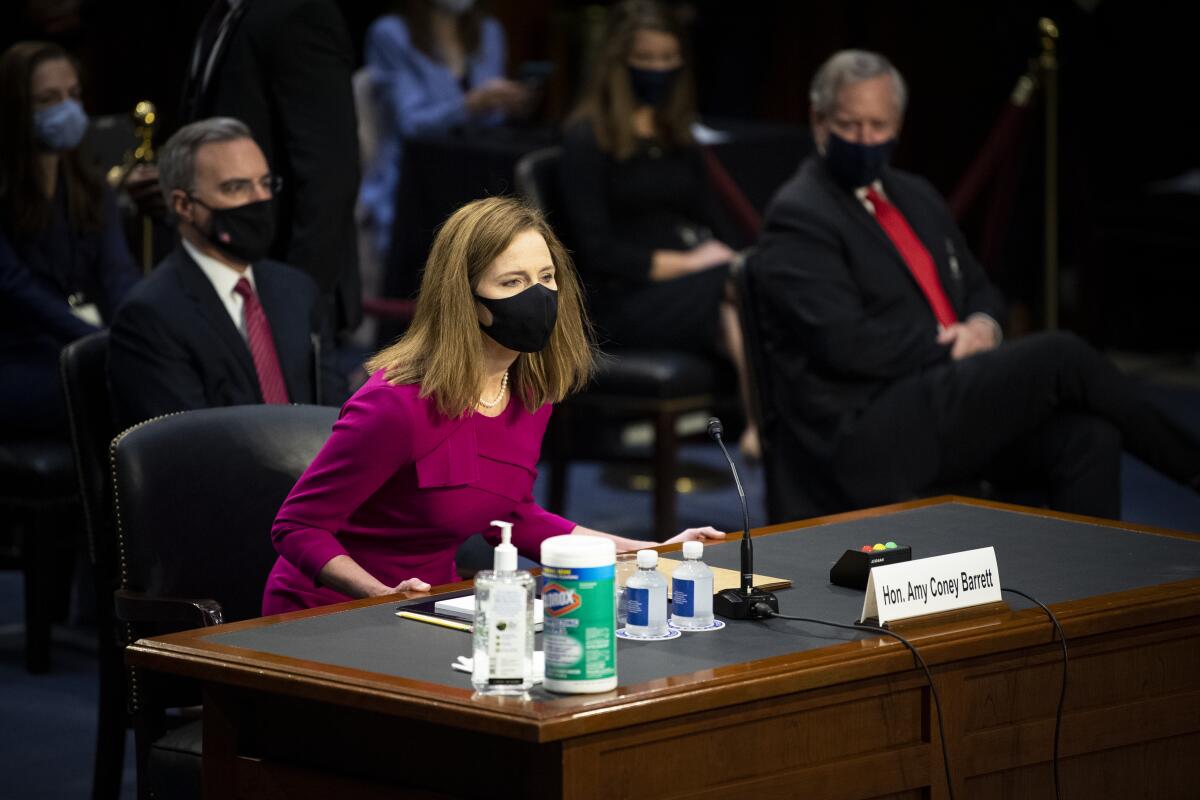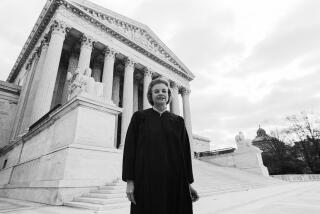Letters to the Editor: Amy Coney Barrett’s faith is fair game for her Senate confirmation hearings

To the editor: Judge Amy Coney Barrett’s fundamental beliefs must be examined and are relevant to the question of whether she should be confirmed for a seat on the U.S. Supreme Court (“Amy Barrett’s conservative faith creates uncomfortable debate over religion and policy,” Oct. 9).
Let me put it this way: What if Barrett was a Muslim? Or how about a Scientologist? Her supporters evidently feel that because her core beliefs stem from Christianity, she should be given a pass. Besides, she is “smart.”
Fundamentalists come from all religious traditions. It is important to learn how those beliefs shape their opinions on the laws of the land.
We also deserve to know what takes precedence to them — imposing their religious dogma in their decisions, or judging impartially?
Mike Feinman, Costa Mesa
..
To the editor: Everyone has blinders on when it comes to politics. It is vitally important to be aware of those blinders when they affect private choices and public policies.
The L.A. Times’ article documented the devout faith of Barrett and her husband, Jesse Barrett. Given their deeply held beliefs concerning the sanctity of life, I was surprised and disappointed that they would not observe the recommended safety procedures for their children and themselves at the Rose Garden ceremony announcing her nomination to the Supreme Court and also at the private Oval Office meeting with Trump administration officials.
The failure to observe the U.S. Centers for Disease Control and Prevention’s recommendations on wearing a mask and social distancing likely resulted in COVID-19 infections for many attendees.
If Barrett and her husband were willing to ignore safety procedures at these events, are they willing to ignore other government-mandated policies due to their political beliefs?
Dan Caldwell, Pacific Palisades
..
To the editor: Religious faith, public policy and the federal courts can never be lumped together as co-equal parts of a trinity. They must be held dispassionately discrete. or we abandon the constitutional principle separating church and state.
At 93, I have lived through many partisan efforts to blur the distinction between private faith and public policy. Thankfully, none has yet succeeded.
I gave up calling myself a Christian during the Vietnam War when my church failed to adopt a Christian view of the conflict. Over the decades, I have been gratified by the growing acceptance of the idea that women should control their own bodies as well as their own beliefs.
Whatever the outcome of Barrett’s nomination to the Supreme Court, I pray she will remain true to her oath to be guided solely by existing law.
Sylvia Walker, Camarillo
More to Read
A cure for the common opinion
Get thought-provoking perspectives with our weekly newsletter.
You may occasionally receive promotional content from the Los Angeles Times.










